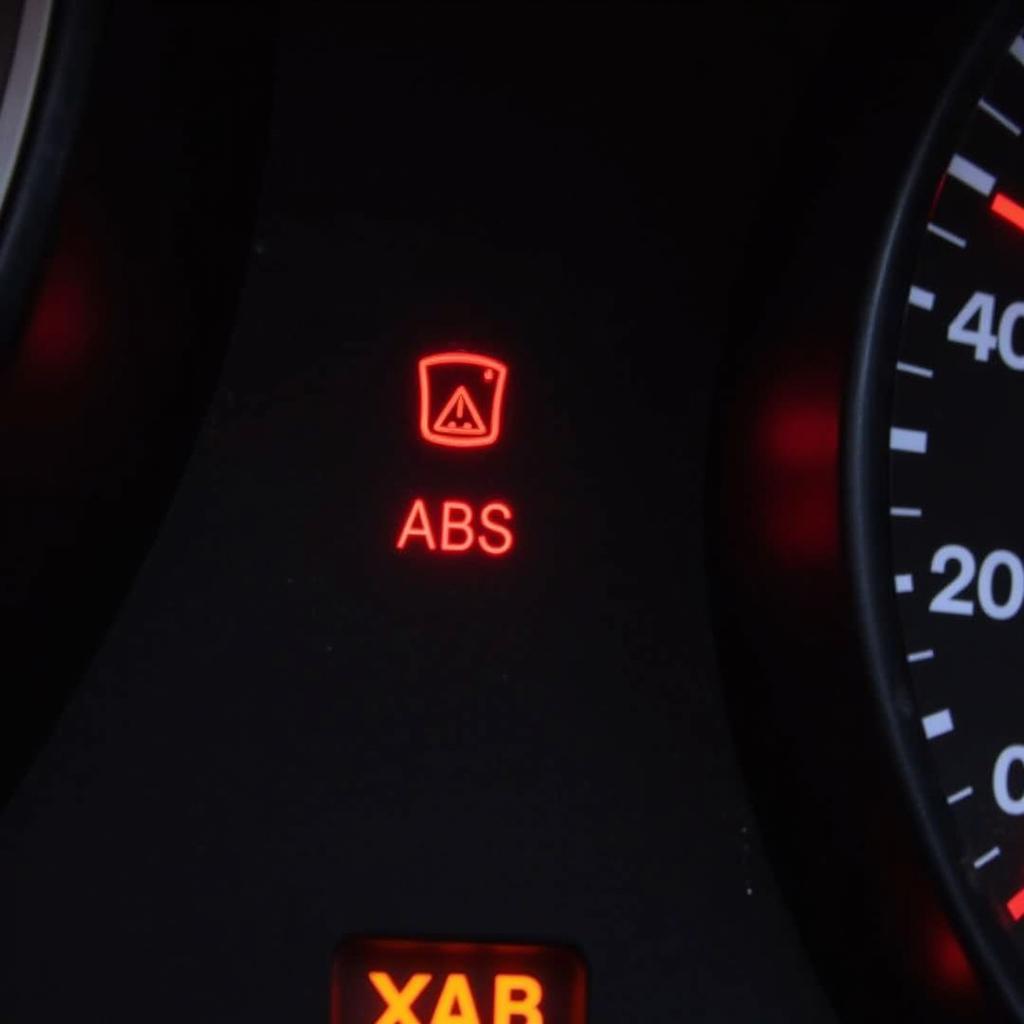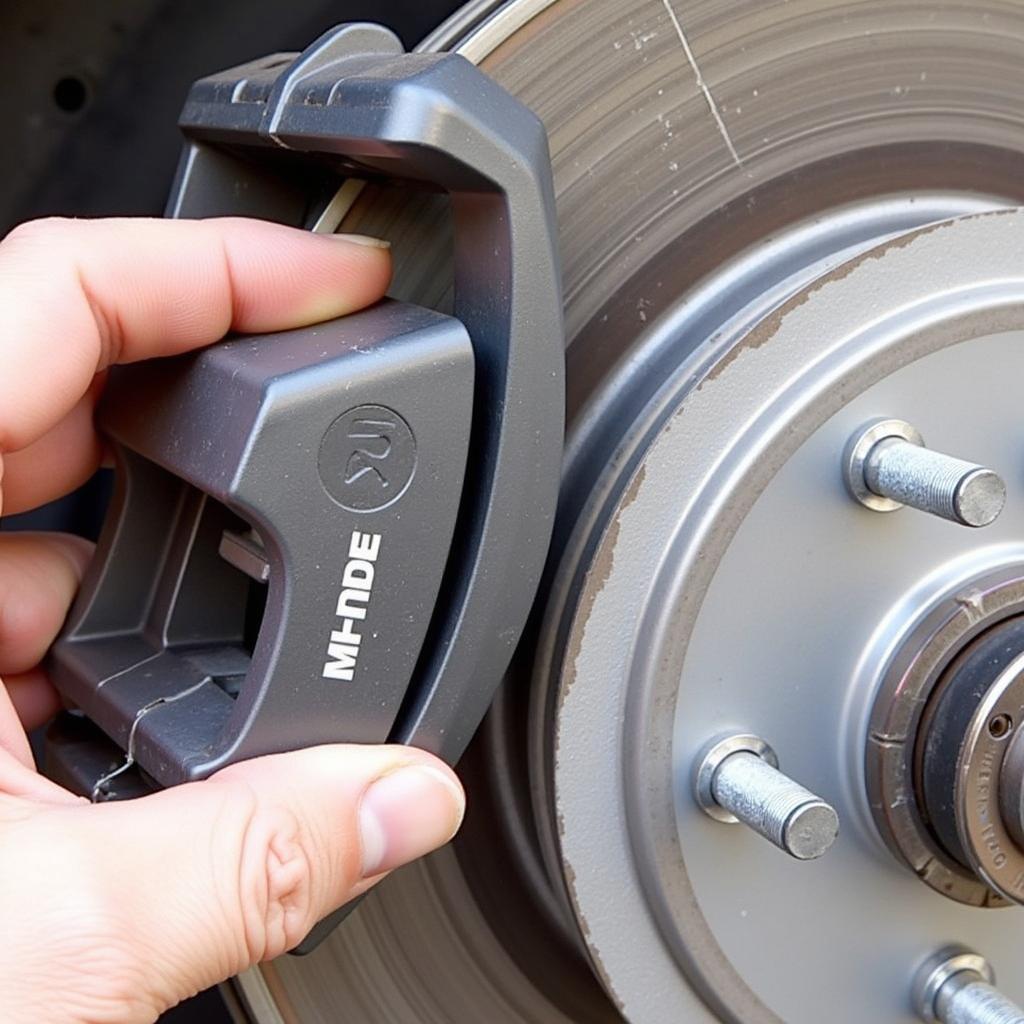That pesky brake warning light on your 2001 VW Passat has you worried? You’re not alone. This guide provides a comprehensive overview of the causes, diagnosis, and solutions for a 2001 VW Passat brake warning light, empowering you to tackle the issue head-on.
Are you tired of that annoying 2001 vw passat brake warning light staring you in the face every time you drive? Let’s dive into the possible reasons why your brake warning light might be illuminated and how to address them. Understanding your car’s braking system is crucial for safe driving, and this guide aims to equip you with the knowledge you need to diagnose and resolve the issue effectively. vw passat check brake pads warning light offers some valuable insight into a common cause.
Understanding Your 2001 VW Passat Brake Warning Light
The brake warning light in your 2001 VW Passat is designed to alert you to potential problems within your braking system. Ignoring this light could lead to serious safety risks. It’s important to understand what triggers this warning and how to react appropriately. Is it simply worn brake pads, a more complex issue with the brake fluid, or perhaps something else entirely? This is a question we’ll explore in detail.
 2001 VW Passat Brake Warning Light on Dashboard
2001 VW Passat Brake Warning Light on Dashboard
Common Causes of a 2001 VW Passat Brake Warning Light
Several factors can cause the brake warning light to illuminate. These range from simple fixes like low brake fluid to more complex issues requiring professional attention. Some of the most common culprits include worn brake pads, a faulty brake fluid level sensor, issues with the ABS system, or problems with the parking brake. Each of these possibilities warrants a closer look.
Worn Brake Pads: A Frequent Offender
One of the most common reasons for the brake warning light to come on is worn brake pads. As your brake pads wear down, a sensor within the brake system triggers the warning light. This is a relatively simple fix that involves replacing the brake pads.
Brake Fluid Issues: Keeping it Topped Up
Low brake fluid is another common trigger for the brake warning light. A leak in the brake lines can cause the fluid level to drop, activating the warning. Identifying and fixing the leak is essential, followed by refilling the brake fluid to the appropriate level. vw 2001 passat warning stop brake fault service manual can provide detailed guidance on addressing this issue.
Diagnosing the Problem: A Step-by-Step Approach
Diagnosing the issue behind your 2001 vw passat brake warning light requires a systematic approach. Start by checking the brake fluid level. If it’s low, look for leaks. Inspect your brake pads for wear and tear. If you suspect a more complex problem like a faulty ABS sensor, consider seeking professional help. vw passat brake fault warning offers valuable information on diagnosing brake faults.
What if the light flickers?
A flickering brake warning light can indicate a more serious problem, often related to the ABS system or a failing brake sensor. Don’t ignore a flickering light. Address it promptly.
Resolving the Issue: DIY or Professional Help?
Some fixes, like replacing worn brake pads or topping off brake fluid, can be handled by DIY enthusiasts. However, more complex issues like ABS problems or brake line leaks may require the expertise of a qualified mechanic. “Ignoring a brake warning light is never a good idea,” advises John Smith, a certified automotive technician with 20 years of experience. “It’s always best to err on the side of caution and have a professional diagnose the problem if you’re unsure.” vw brake pad warning light reset provides instructions for resetting the light after repairs. 2001 ve passat how to reset brake pad warning light also provides relevant insights.
Conclusion: Staying Safe on the Road
Addressing your 2001 vw passat brake warning light promptly is essential for safe driving. By understanding the potential causes and following a systematic diagnostic approach, you can ensure your braking system is in top condition and avoid potentially hazardous situations. Don’t hesitate to seek professional help if you’re unsure about any aspect of the diagnosis or repair process. Remember, a functioning brake system is paramount to your safety on the road.

